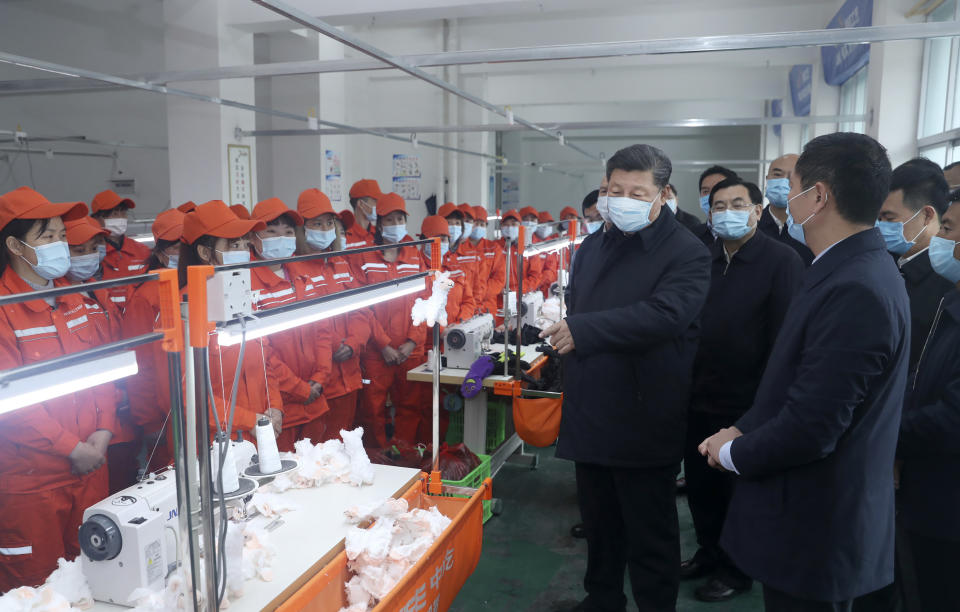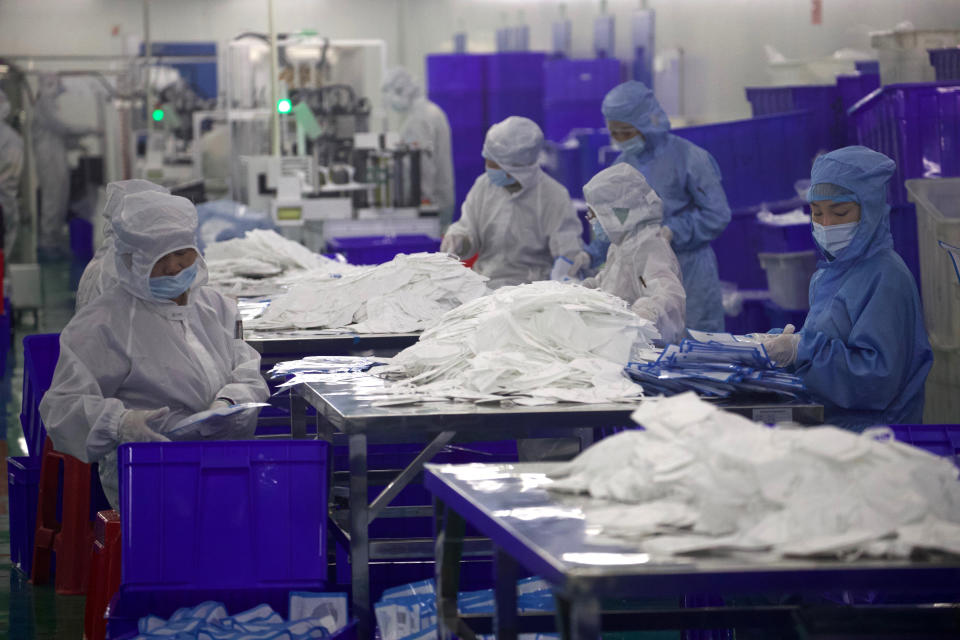China puts global economic recovery into 'radically different terrain:' Former Prime Minister of Australia
Lessons learned from the Great Recession suggest that China’s ability to stimulate its way out of the the coronavirus pandemic will be limited, according to Former Prime Minister of Australia Kevin Rudd. Speaking to Yahoo Finance, Rudd, the current President of the Asia Society Policy Institute, said that Beijing faces significant constraints on the financial and monetary levers it can pull because of the debt the country has accumulated since 2008.
“China's stimulus in 2009, 2010 assisted pulling the Asia-Pacific, and the global economy indirectly, into an earlier phase of recovery,” Rudd said. “But China being first hit by this one and not deploying anything like the 10% to 15% of GDP stimulus that they did in '09-10, then we're into a radically different terrain in terms of the global economic recovery.”
China is attempting to revive its economy, after the coronavirus outbreak placed much of the country in lockdown in for months. Its economic output fell by 6.8% in the first quarter, marking the first contraction since official records began.
While manufacturing activity has largely returned, albeit with social distancing restrictions, the rebound has not trickled down to the services sector yet. Overall retail sales declined by 15.8% in March, year on year, while hotel occupancy ratios remain less than half of normal levels, dragged down by existing travel restrictions.
The IMF has projected a 1.2% growth rate for the year, but Rudd said he expects it to be “closer to zero growth.”

Despite the economic pain, China has failed to deliver on hopes of a massive stimulus package on the scale deployed by the U.S. and Europe so far. While Beijing has opted for special bond issuances, subsidies, and reduced employers’ social insurance contributions, those measures have amounted to just over 2% of GDP, according to Reuters analysis.
Rudd said China’s measured approach so far points to three key constraints: debate about the efficacy of Beijing’s approach during the financial crisis, piling debt, and timing.
“It's internally concluded that a lot was wasted (between 2009-2010), that it created asset price bubbles, which created downstream financial crises within the system, particularly in 2015. And therefore, it creates a political overhang, which is ‘I, Xi Jinping am not going to repeat Hu Jintao's and Wen Jiabao's mistakes,” Rudd said. “The debt to GDP ratio hanging around 320% of GDP, as you know, is not modest. That's big by any global standard. Therefore, the central monetary authorities in China will be saying, ‘Whoa, let's be very careful before we start adding another huge slice of public debt.’”
Rudd added that China may be opting to take a more pragmatic approach this time, given the nature of the economic shutdown, saying “throwing a whole bunch of stimulus at economies right now until you have a full return to work doesn't actually have commensurate effect for the simple reason as consumers are not behaving normally.”

Global backlash against the Chinese government may also complicate the economic recovery. While Beijing has publicly engaged in medical diplomacy by airlifting critical supplies to international cities hardest hit by the virus, countries have increasingly grown skeptical of its intentions, with reports of price gouging and faulty equipment and accusations the government attempted to coverup the severity of the outbreak in the initial days. The inability for countries to independently produce personal protective equipment within their borders has also prompted calls to decouple from China and move manufacturing closer to home.
Last week, Japan set aside $2.2 billion of its economic stimulus package to help its manufacturers shift production outside of China. That came after White House Economic Advisor Larry Kudlow suggested the U.S. provide incentives for companies to move manufacturing back home, in an interview with Fox Business. EU Commission President Ursula von der Leyen has said the crisis demonstrated that its member countries should “reduce dependencies by shortening and diversifying our supply chains.”
Despite those geopolitical headwinds, Rudd said China’s global standing will largely depend on its domestic economic agenda.
“Here is the $6,000 question: Will the Chinese leadership see this as a further warning bell to fully prosecute its own domestic market reform agenda further? Or will this cause conservatives within the Chinese leadership system to, in fact, reach for the protectionist mechanism as well to guide China to a gentler recovery?” Rudd said. “This is the open question in terms of how China emerges economically from this.”
Akiko Fujita is an anchor and reporter for Yahoo Finance. Follow her on Twitter @AkikoFujita
